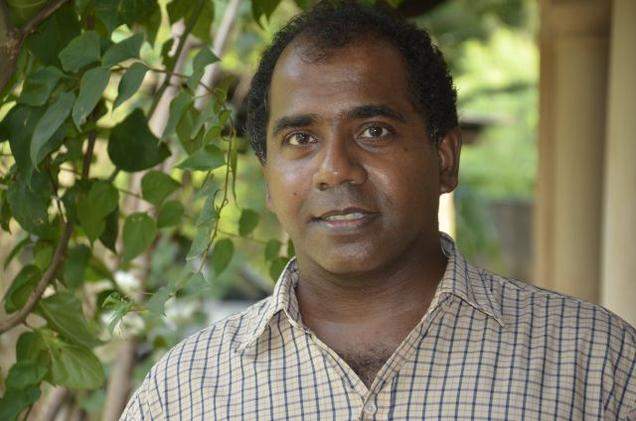 Rajapaksa redux and a democracy in peril ( ‘ராஜபக்சாவின் மீள் எழுச்சியும் ,ஜனநாயகத்துக்கான ஆபத்தும்’ ) என்னும் தலைப்பில் யாழ் பல்கலைக்கழகச் சமூக, அரசியற் துறை சிரேட்ட விரிவுரையாளரான அகிலன் கதிர்காமர். ‘இந்து’ ஆங்கிலப்பத்திரிகையில் கட்டுரையொன்று எழுதியுள்ளார். அது பற்றிய பதிவிது; அதற்கான பகிர்வும் கூட.
Rajapaksa redux and a democracy in peril ( ‘ராஜபக்சாவின் மீள் எழுச்சியும் ,ஜனநாயகத்துக்கான ஆபத்தும்’ ) என்னும் தலைப்பில் யாழ் பல்கலைக்கழகச் சமூக, அரசியற் துறை சிரேட்ட விரிவுரையாளரான அகிலன் கதிர்காமர். ‘இந்து’ ஆங்கிலப்பத்திரிகையில் கட்டுரையொன்று எழுதியுள்ளார். அது பற்றிய பதிவிது; அதற்கான பகிர்வும் கூட.தற்போதுள்ள மைத்திரி -ரணில் அரசானது பொருளியல் ,அரசியல்ரீதியில் தோல்வியுற்றாலும், கடந்த ஐந்து வருடங்களில் ஜனநாயக வெளியினை ஏற்படுத்தியதில் முக்கிய பங்கினையாற்றியுள்ளது. அச்சத்துடன் வாழ்ந்த சூழல், இராணுவமயமாக்கல் ஆகியவற்றை குறிப்பிடத்தக்க அளவில் மாற்றியுள்ளது. போரின் அழிவுகளுக்கு உட்பட்ட பகுதிகளில் ராஜபக்சவின் ஆட்சிக்காலத்தில் அந்தரங்கமாகக்கூட நாட்டு அரசியல் பற்றிக் கதைப்பதற்கு மக்கள் பயப்பட்டார்கள். ஆனால் தற்போதுள்ள அரசியல் சூழலில் மக்கள் வீதிகளுக்கு வந்து இராணுவத்தின் பிடியிலுள்ள நிலங்களை விடுவிக்குமாறு போராட முடிகின்றது. காணாமல் போனவர்களுக்கு என்ன நடந்தது என்பதற்காகப் போராட முடிகின்றது. நாடு முழுவதும் நிலவிய கடத்தப்படுவோம் என்னும் அச்சம் நீங்கி விட்டது. ஊடகங்களுக்குரிய சுதந்திரம் அதிகரித்துள்ளது. அடக்குமுறை குறைந்துள்ளது. எதிர்ப்பினை வெளிப்படுத்தும் ஆர்ப்பாட்டக் கலாச்சாரம் மீண்டும் திரும்பி விட்டது.
இவைனைத்தையும் ராஜபக்சவின் மீள் எழுச்சி மாற்றி விடும். ஜனநாயகத்து ஆபத்தானது இம்மீளெழுச்சி. இதனை வற்புறுத்தும் கட்டுரை இது. இதனை எழுதியவர் யாழ் பல்கலைக்கழகச் சமூக, அரசியற் துறை சிரேட்ட விரிவுரையாளரான அகிலன் கதிர்காமர். ‘இந்து’ ஆங்கிலப்பத்திரிகையில் வெளியான கட்டுரை இது. பயன் கருதிய பகிர்விது.
(TheHindu.Com): Rajapaksa redux and a democracy in peril ! The return of an authoritarian oligarchy in Sri Lanka could be stopped by a united stand of democratic forces! By Ahilan Kadirgamar (Ahilan Kadirgamar is a political economist and Senior Lecturer, University of Jaffna )
Sri Lanka is again at the crossroads with presidential elections due before December 9, 2019. The political drive since the newly formed Rajapaksa-led Sri Lanka Podujana Peramuna (SLPP), which swept the local government polls in February 2018, has culminated in Gotabaya Rajapaksa, the much feared former Defence Secretary and younger brother of the former President, Mahinda Rajapaksa, being named presidential candidate.
The Rajapaksa regime, which decimated the Liberation Tigers of Tamil Eelam and consolidated considerable power around a family until it was dislodged in January 2015, may now be on the verge of recapturing state power and drastically changing the political landscape for the next decade, if not longer. Even as the United National Party (UNP) in power is dillydallying on its presidential candidate, the SLPP is moving fast in an electoral game that the Rajapaksas have proven to be masters at.
The rise of Gotabaya Rajapaksa, after what seemed like decisive regime change in January 2015, is in good measure due to the failures of the current Wickremesinghe-Sirisena government. Neither did the new government hammer through the allegations of corruption and rights abuse levelled against the Rajapaksa regime nor did it provide a meaningful programme to address economic woes. Rather, infighting and self-serving manoeuvres within the government have brought its stated plans, from economic reforms to a constitutional political settlement, to a standstill.
Despite the many political and economic failures of the current government, the significant shift over the last five years has been the opening of democratic space. The climate of fear and continuing militarisation were to a great degree reversed. In the war-torn regions, where there was fear to even speak in private during the post-war years under Rajapaksa rule, people now take to the streets demanding the release of military-held lands, answers on those who have disappeared in the war and relief for the rural indebted. Throughout the country, with the fear of abductions gone and repression decreasing, dissent and the culture of protests have returned along with greater freedom for the media.
State power and nationalists
venkat_swaminathan_new_a
Copyright © 2024 இரவி — Primer WordPress theme by GoDaddy
